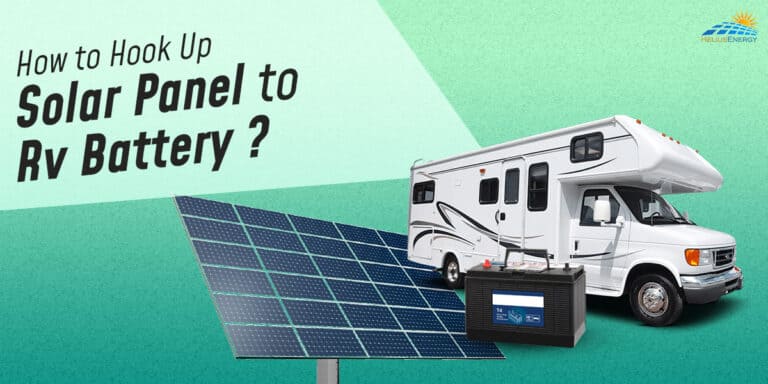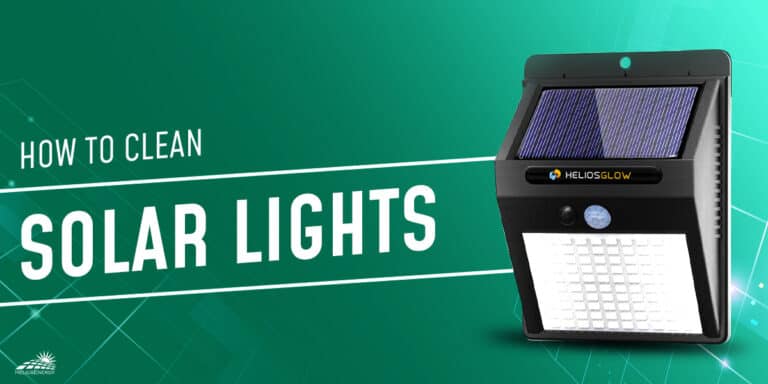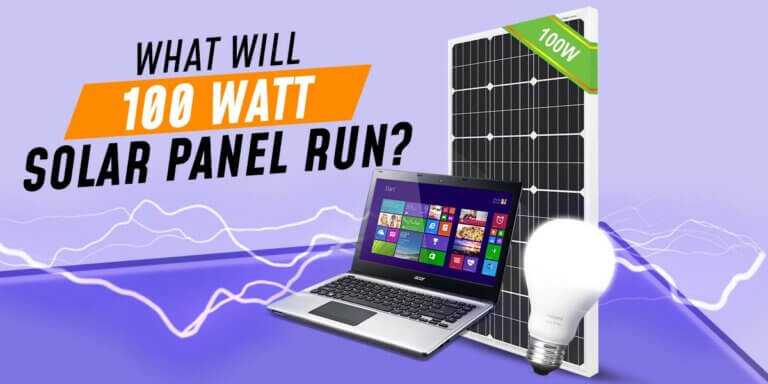Use Your Home Solar Panels to Charge Your Electric Car
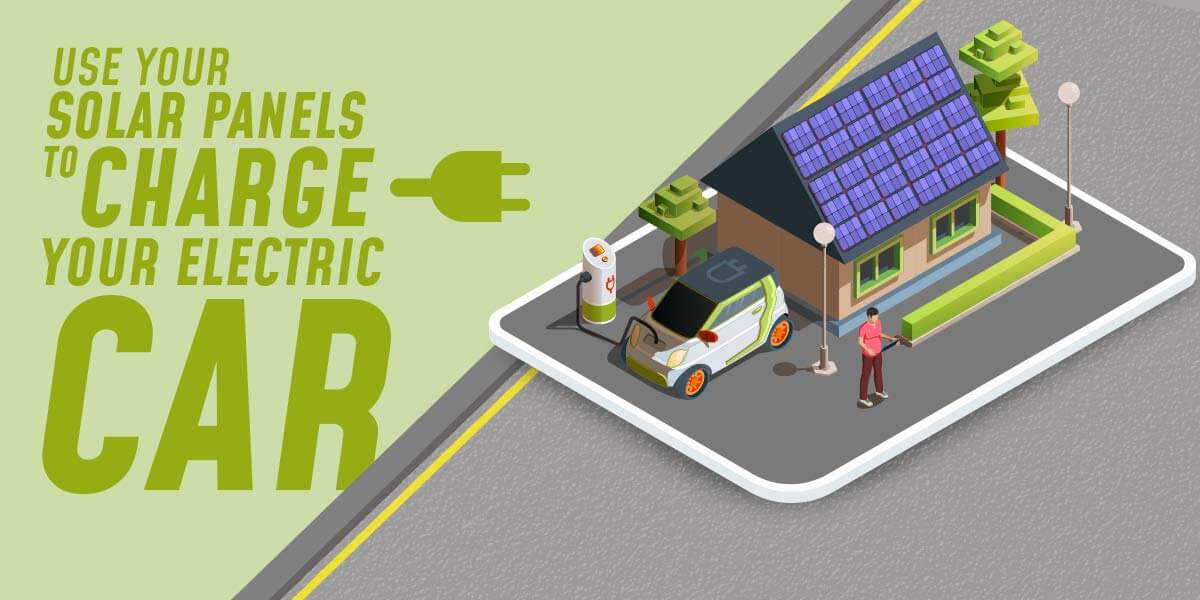
Pairing home solar panels to charge electric cars has numerous benefits, the most notable being maximizing savings. With the help of the power generated by your home’s solar system, you can successfully charge an EV within a mere few hours while saving more than $1,000 a year, in contrast to fueling a gas-powered car. Make sure your rooftop solar system is sized proportionately to account for proper EV charging and other similar critical loads, and you should be good to go!
Moreover, charging EVs with solar panels also brings down carbon emissions, and with climate change at an all-time high, doing our part in bringing down our carbon footprint is quintessential. Going from a car with an internal combustion engine fueled by gas to an EV with an electric motor is already a big, optimistic jump. Charging your EV from the grid usually entails relying on fossil fuels. Still, using solar power for your EV makes you less reliant on non-renewable energy, reducing carbon footprints. It is a win all across the board!
- 1. Gas-Powered Cars Vs EV | How Does Fuel Cost Compare?
- 2. How Much Does it Cost to Charge An Electric Car | From the Grid Vs Charging Stations Vs Solar
- 3. Can You Charge An Electric Car With Home Solar Panels?
- 4. How Many Solar Panels You Need to Charge Your Electric Car?
- 5. Closing Thoughts | Charging EV with Solar Panels Remains the Cheapest Option
Gas-Powered Cars Vs EV | How Does Fuel Cost Compare?
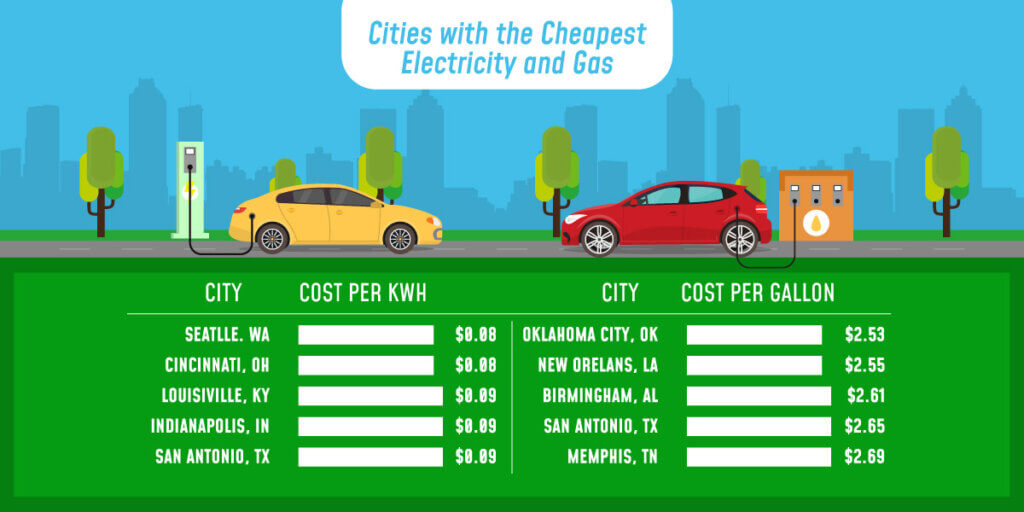
An apparent difference between an Electric Vehicle and an Internal Combustion Engine is their fuel source. What you use to power your vehicle decides a lot. ICEs typically run on gasoline burnt internally to power the vehicle, while EVs work on electricity which can come from many sources, including the burning of coal or gas, as well as from renewable sources such as wind, solar, and hydropower.
A 2018 study by the University of Michigan’s Transportation Research Institute asserted that EVs cost less than half as much as it takes to operate a gas-powered car. The average cost of operating an EV in the United States is nearly $485 a year, while the average for its gas-powered counterpart is a whopping $1,117. Of course, the exact difference depends largely on where you live and the electricity rates of the area, as well as the type of car you drive. Your vehicle’s fuel efficiency rating will decide the amount you spend on your gas tank. There are “fuel-efficient” cars designed to maximize their miles/gallon rate, costing much less money per mile traveled. For example, a vehicle rated at 30 mpg will cost you less fuel over time than one rated at 20 mpg.
How Much Does it Cost to Charge An Electric Car | From the Grid Vs Charging Stations Vs Solar
1. Charging Your EV From the Grid at Home
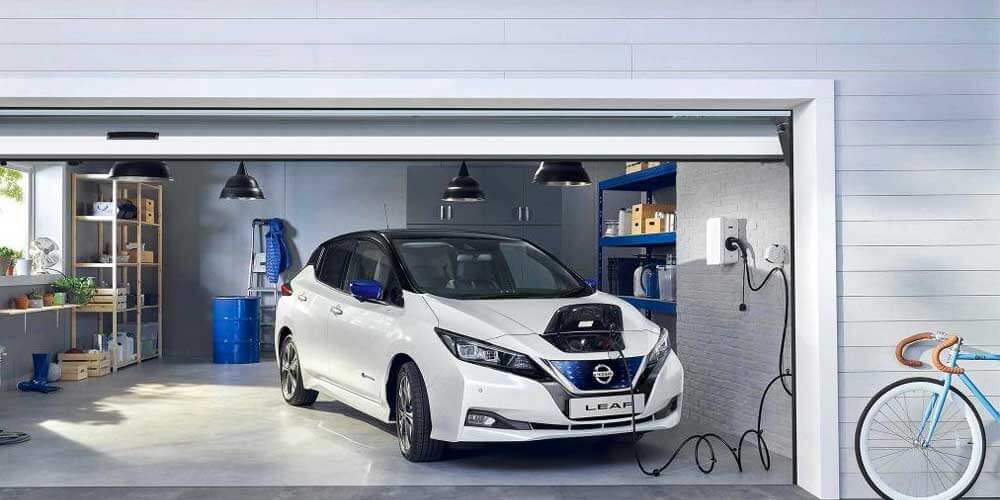
The current fuel cost from the grid is the amount you pay for a kilowatt-hour (kWh). In the States, it can look like $.10 to $.40, decided by where you live, but the general average is about $.13/kWh. You will get about 3 to 4 miles of range for every kWh in your battery, so 12 kWh will get you an approximate 40-mile round trip each day at an average cost of nearly $1.56.
Note that that’s how it looks right now. Still, electricity prices are often on the rise, much like everything else, so next year, you may be paying 2 or 3% more for the same amount of electricity. Similarly, over the lifetime of your vehicle, prices could go up much higher. Over 25 years, your average cost for 1 kWh of grid power can be around 17 cents, given electricity prices rise 2% every year and you happen to live in a state where electricity costs are currently at $.13/kWh. In other news, at a historical rate of energy cost increase, Californians might start paying $662 a year to charge EVs and end up shelling out over $1,000 every year within 20 years while using grid power.
2. Charging Your EV at a Charging Station
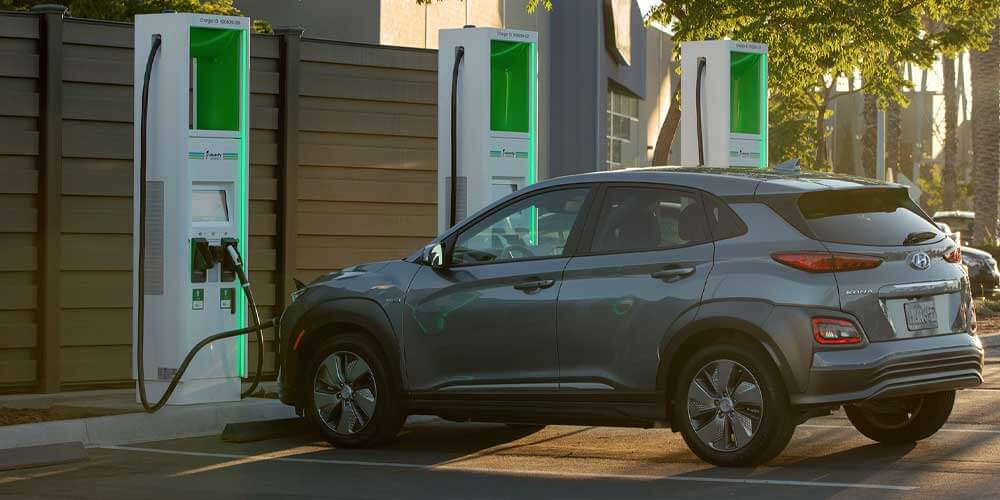
You will come across numerous free EV charging stations all around the country, but chances are that you’ll be paying for the electricity you require, and that, too, paying a lot. Of course, the prices of charging an EV through charging stations vary based on location. For instance, a Tesla charging station presently costs around $.28/kWh for Tesla owners, whereas services such as Blink are even costlier, with a minimum rate of $.39/kWh and a ceiling of $.69/kWh if you want to opt for fast charging. They can be between 2 to 5 times more expensive than your everyday home charging from the grid.
3. Charging EV with Rooftop Solar Panels
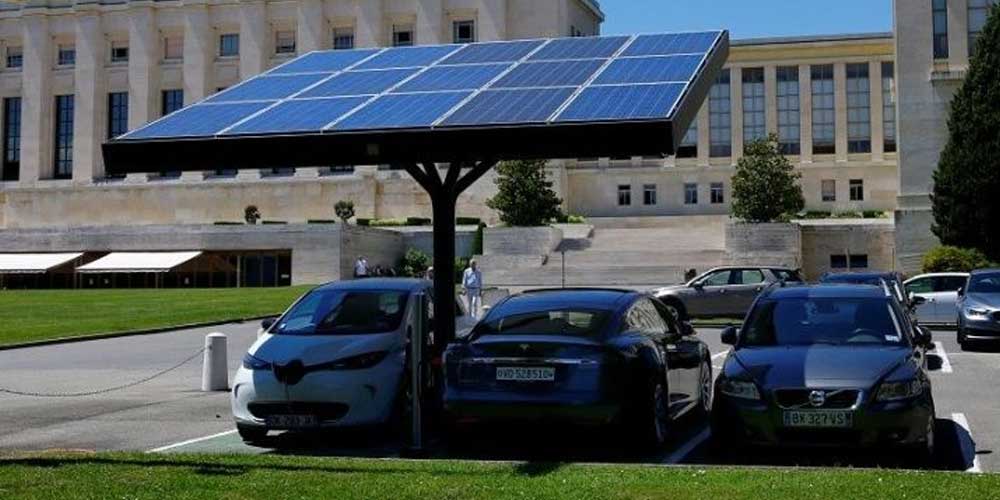
Now, coming to using home solar panels to charge electric cars, you will either have to pay for a solar module by laying out hard cash or opt for a solar loan and pay it over time. Sure, that does not sound like a small amount, but it is better than shelling out a hefty amount for 25 years worth of electricity charges. The Levelized Cost of Energy or LCOE for these purposes.
In simple terms, it is just the total cost of installation spanning all the electricity your solar panel will generate in its lifetime, followed by adjustment for inflation. Here’s the good news- the LCOE of home solar systems in the States is at present at about $.11/kWh for systems with an average solar installation cost of $3.00 per watt, as of January 2022, before subtracting the federal solar tax credit. In sunny states such as California, or states with additional incentives such as Massachusetts, solar LCOE is considerably lower.
Can You Charge An Electric Car With Home Solar Panels?
The answer is a definite, resounding yes! When purchasing or leasing an electric vehicle, the dealer will send you home with a charging cable that can be plugged into your home’s standard 120-volt outlet. But here’s the problem: 120V can charge your EV’s battery at a mere rate of approximately 4 miles/hour of charging. It is up to you whether it is fast enough for you to pull off the next day’s errands.
It makes sense to upgrade to a Level 2 charger if you want 4 times more effective solar panels to charge electric cars. But here is the catch- a separate level 2 charger can cost you around $800 approximately; it will require a separate installation and a 240V outlet, which can prove expensive. A hired licensed electrician must oversee the process, and in some cases, the main electrical service panel or circuit breaker will also require an upgrade. Installing a separate Level 2 EV charger might cost you $1,600 or more. That cuts deep into the potential energy savings you might be trying to get from your EV.
How Many Solar Panels You Need to Charge Your Electric Car?
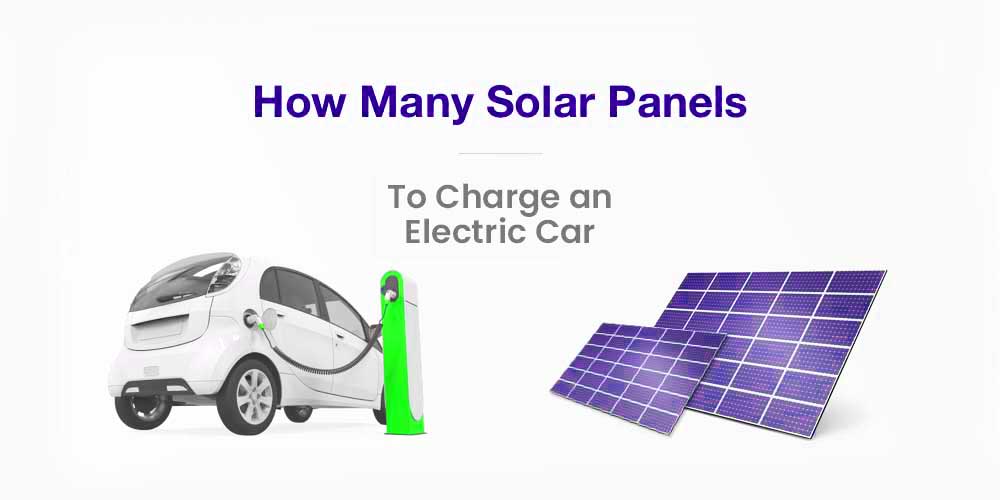
While it is great that charging an EV with solar panels has its benefits, knowing the calculation helps: you’ll need somewhere around 10 to 17 kWh of electricity every day to charge an EV. Now it is time to figure out the number of solar panels you’ll need to generate that much electricity. A regular modern solar panel puts out around 350 watts under full Sun, getting around 3 to 7 peak Sun hours in a day. This, of course, depends on where you live. That comes to 1.05 and 2.45 kWh of electricity per day.
Considering you get 1.75 kWh per day from each panel, you’d need a little over 5 panels to make enough energy to properly charge a Tesla Model 3 battery and consequently get a range of 40 miles. The number of panels goes up if you need more than that range. You will need nearly 7 350-watt panels to charge a Nissan Leaf through the same calculation aptly. A Porsche Taycan 4S will need 10 panels to make ample energy for a 40-mile drive.
Closing Thoughts | Charging EV with Solar Panels Remains the Cheapest Option
So, summing it up, can an electric car be charged with solar panels? The answer is a resounding yes! All in all, solar panels to charge electric cars are a great way to maximize your cost savings for the long term while contributing your two cents towards the reduction of carbon emission and carbon footprints in general. It is a remarkable way to fuel electric vehicles. If you want to leap towards an environmental-conscious future, putting solar panels and electric cars together is the way forward!


